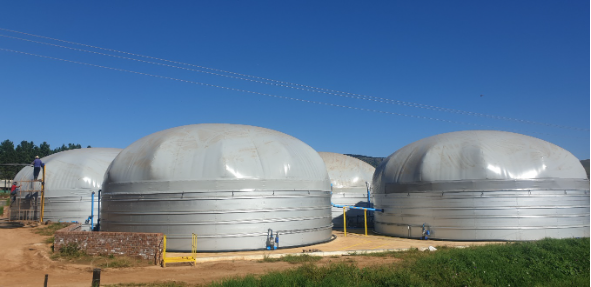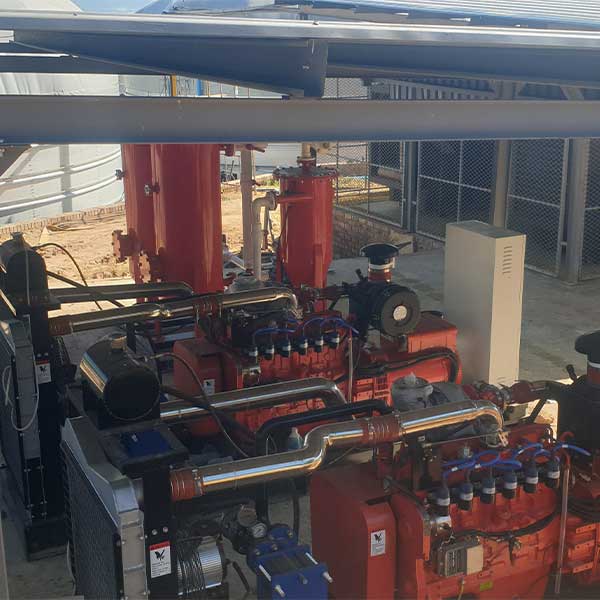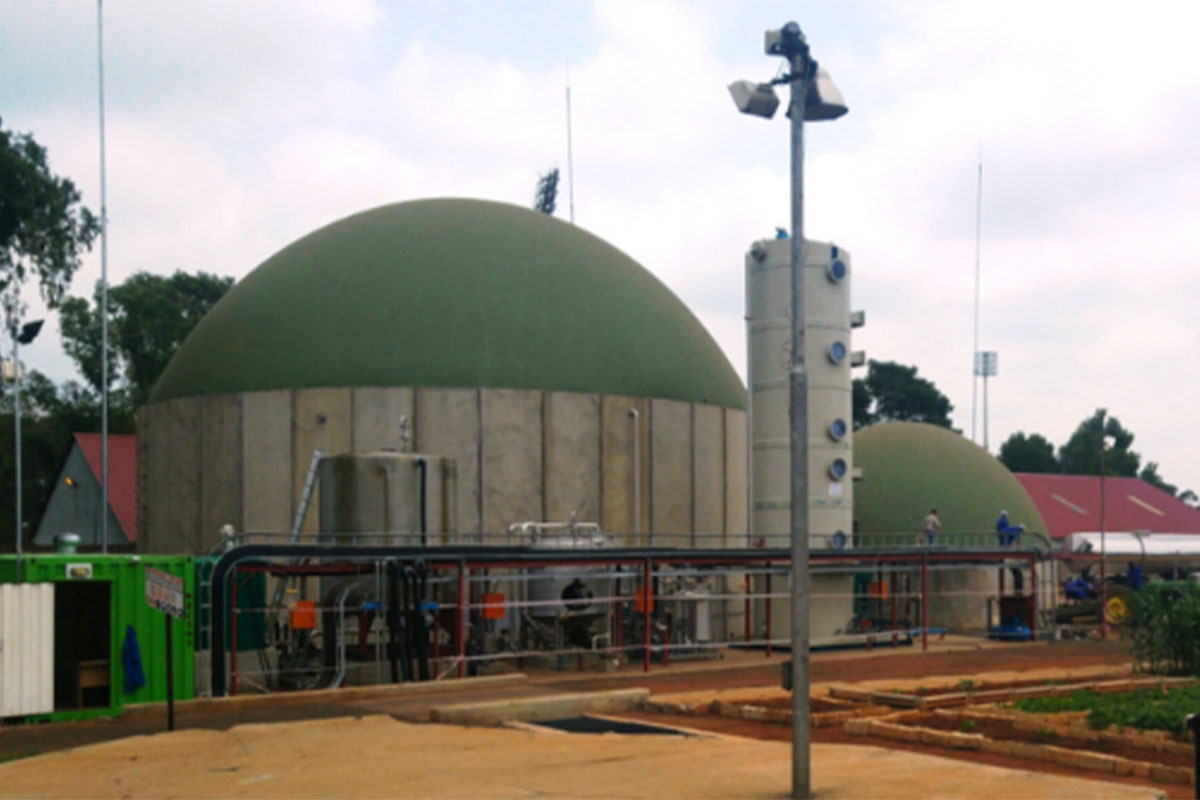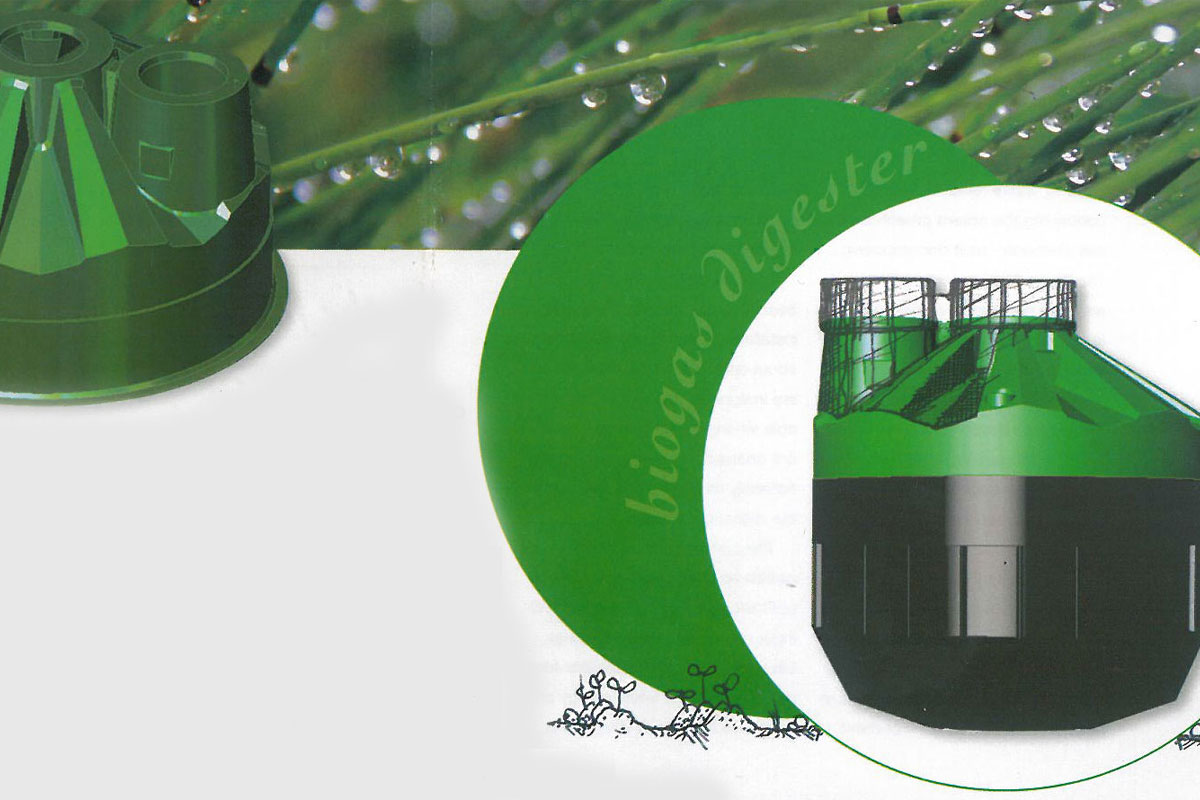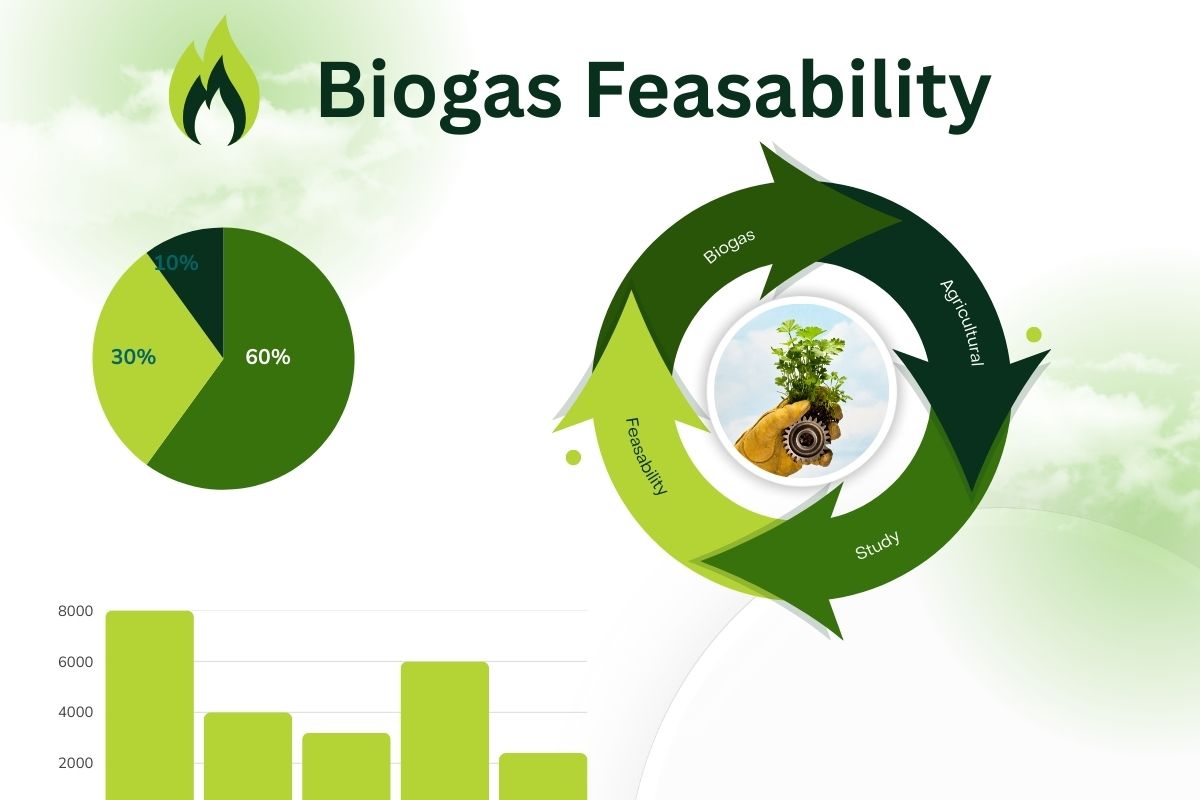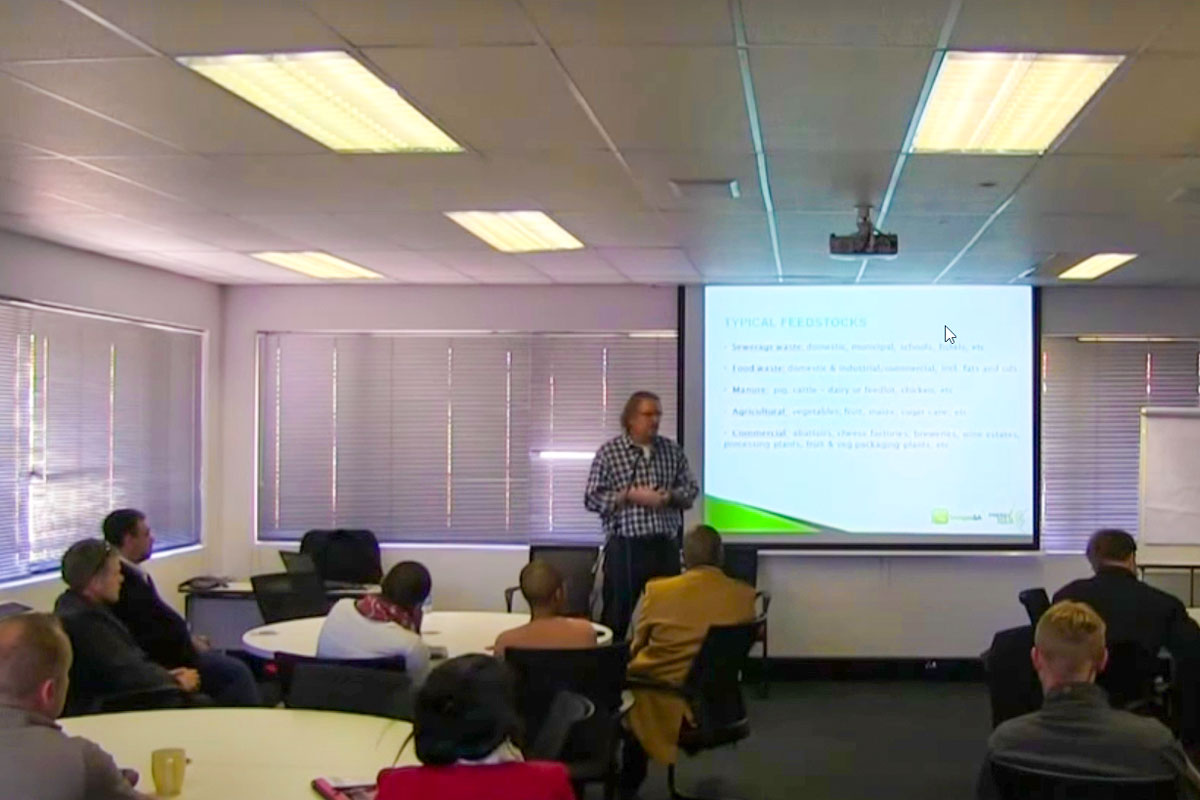Morgan Abattoir Biogas Plant
BiogasSA has supplied, installed and commissioned over 200 small scale digesters all over Southern Africa for households, small farms, community projects and schools.
BiogasSA was responsible for the design and construction of a 400 kW installed capacity anaerobic digestion (AD) plant at Morgan Abattoir, commissioned in 2015. The facility was engineered to process up to 25 tonnes per day of high-strength organic waste derived from abattoir operations, including blood, gut contents, paunch manure, and condemned material.
The biogas plant was designed to offset approximately 50% of the abattoir’s total electrical energy demand through on-site cogeneration. The core process infrastructure includes a single continuously stirred tank reactor (CSTR) with a working volume of 2,000 m³, an 800 m³ domed gas storage vessel, and a pumped gas-mixing system to ensure homogeneity and optimise biogas yield. Thermal energy for digester heating is provided via an external heat exchanger, improving process stability and methane production efficiency.
A biological scrubbing system for biogas desulphurisation was also installed; however, this unit was not commissioned during the initial operational phase. The plant represents an integrated waste-to-energy solution, reducing the abattoir’s reliance on grid electricity while offering a sustainable method for managing high-pathogen, odorous waste streams in compliance with environmental regulations.
Thiele Farm Biogas Plant
BiogasSA was appointed as the Project Manager for the implementation of a 240 kW installed capacity anaerobic digestion (AD) facility at Thiele Farm, located in northern KwaZulu-Natal. The plant was commissioned in May 2025 and utilises pig manure and grain silage as its primary feedstock.
The addition of the biogas plant was driven by the farm’s objective to achieve energy autonomy, recognising that photovoltaic (PV) generation alone could not provide reliable, continuous power. Unlike solar PV, the biogas plant produces dispatchable electricity, enabling it to serve as a baseload or peak-shaving asset in complement to intermittent PV generation. This dispatchability allows the biogas system to effectively function as an energy storage solution, offsetting the need for batteries. Combined, the biogas and PV plants will now supply approximately 85% of the farm’s total daily electricity demand.
To optimise energy utilisation, an advanced energy management system (EMS) supplied and configured by Renen Energy has been integrated into the operation. The EMS monitors load profiles and generation availability in real-time, dynamically controlling the operation of high-demand electrical equipment—including the feed mill, water pumps, and irrigation pivots. It prioritises energy sourcing from PV and biogas generation, with fallback to Eskom supply or on-site diesel generators as needed. This integrated approach significantly enhances load flexibility, system resilience, and operational cost-efficiency.
